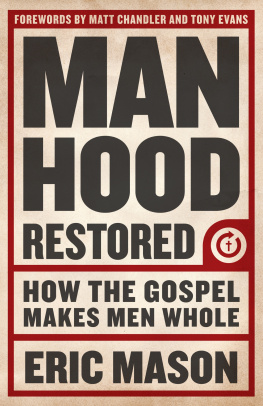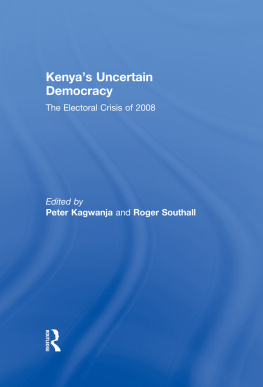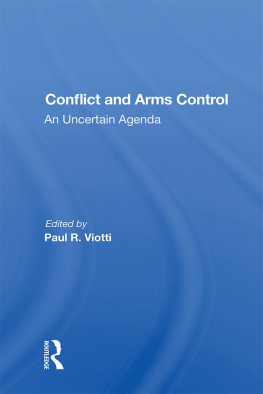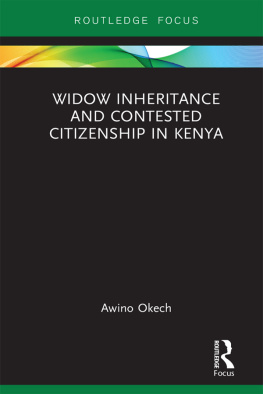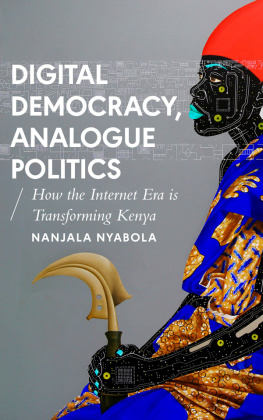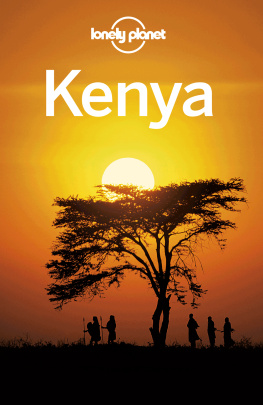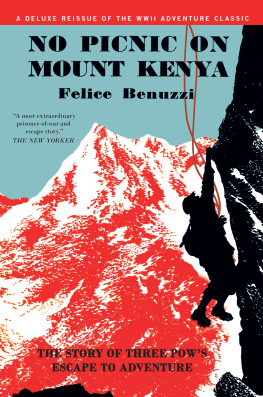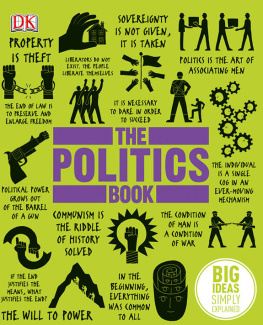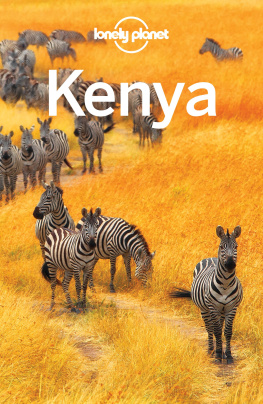NEW AFRICAN HISTORIES
SERIES EDITORS: JEAN ALLMAN, ALLEN ISAACMAN, AND DEREK R. PETERSON
Books in this series are published with support from the Ohio University Center for International Studies.
David William Cohen and E. S. Atieno Odhiambo, The Risks of Knowledge
Belinda Bozzoli, Theatres of Struggle and the End of Apartheid
Gary Kynoch, We Are Fighting the World
Stephanie Newell, The Forgers Tale
Jacob A. Tropp, Natures of Colonial Change
Jan Bender Shetler, Imagining Serengeti
Cheikh Anta Babou, Fighting the Greater Jihad
Marc Epprecht, Heterosexual Africa?
Marissa J. Moorman, Intonations
Karen E. Flint, Healing Traditions
Derek R. Peterson and Giacomo Macola, editors, Recasting the Past
Moses E. Ochonu, Colonial Meltdown
Emily S. Burrill, Richard L. Roberts, and Elizabeth Thornberry, editors, Domestic Violence and the Law in Colonial and Postcolonial Africa
Daniel R. Magaziner, The Law and the Prophets
Emily Lynn Osborn, Our New Husbands Are Here
Robert Trent Vinson, The Americans Are Coming!
James R. Brennan, Taifa
Benjamin N. Lawrance and Richard L. Roberts, editors, Trafficking in Slaverys Wake
David M. Gordon, Invisible Agents
Allen F. Isaacman and Barbara S. Isaacman, Dams, Displacement, and the Delusion of Development
Stephanie Newell, The Power to Name
Gibril R. Cole, The Krio of West Africa
Matthew M. Heaton, Black Skin, White Coats
Meredith Terretta, Nation of Outlaws, State of Violence
Paolo Israel, In Step with the Times
Michelle R. Moyd, Violent Intermediaries
Abosede A. George, Making Modern Girls
Alicia C. Decker, In Idi Amins Shadow
Rachel Jean-Baptiste, Conjugal Rights
Shobana Shankar, Who Shall Enter Paradise?
Emily S. Burrill, States of Marriage
Todd Cleveland, Diamonds in the Rough
Carina E. Ray, Crossing the Color Line
Sarah Van Beurden, Authentically African
Giacomo Macola, The Gun in Central Africa
Lynn Schler, Nation on Board
Julie MacArthur, Cartography and the Political Imagination
Abou B. Bamba, African Miracle, African Mirage
Daniel Magaziner, The Art of Life in South Africa
Paul Ocobock, An Uncertain Age
Ohio University Press, Athens, Ohio 45701
ohioswallow.com
2017 by Ohio University Press
All rights reserved
To obtain permission to quote, reprint, or otherwise reproduce or distribute material from Ohio University Press publications, please contact our rights and permissions department at (740) 593-1154 or (740) 593-4536 (fax).
Printed in the United States of America
Ohio University Press books are printed on acid-free paper.

27 26 25 24 23 22 21 20 19 18 17 5 4 3 2 1
Library of Congress Cataloging-in-Publication Data
Names: Ocobock, Paul, 1980 author.
Title: An uncertain age : the politics of manhood in Kenya / Paul Ocobock.
Other titles: New African histories series.
Description: Athens : Ohio University Press, 2017. | Series: New African histories | Includes bibliographical references and index.
Identifiers: LCCN 2017001261| ISBN 9780821422632 (hc : alk. paper) | ISBN 9780821422649 (pb : alk. paper) | ISBN 9780821445983 (pdf)
Subjects: LCSH: Coming of ageKenyaHistory20th century. | MasculinityPolitical aspectsKenyaHistory20th century. | Young menKenyaSocial conditions20th century. | Conflict of generationsKenyaHistory20th century. | KenyaSocial conditions20th century. | KenyaColonial influence. | KenyaPolitics and governmentTo 1963.
Classification: LCC DT433.575 .O26 2017 | DDC 967.6203dc23
LC record available at https://lccn.loc.gov/2017001261
Acknowledgments
AS I WROTE ABOUT HOW young Kenyan men and the colonial state came of age, I could not help but think about the life of this book and the folks who helped me write it along the way. The idea for this book was born at St. Antonys College, Oxford, as I worked through my MPhil degree in history. Oxford still feels like my second home. I met the love of my life, learned a lot about being a historian of Africa, and made many friends, including Dave Anderson, Daniel Branch, Kevin Dumouchelle, and Richard Waller, who shaped this project from the very start.
After Oxford, my book idea and I traveled to Princeton, where we grew up spoiled by the supervision of Bob Tignor and Emmanuel Kreike, as well as the financial support of the Department of History. They gave me just enough freedom to feel rebellious. During my three-hour dissertation defense, I could not help but wonder aloud if anyone else felt like this was a kind of intellectual initiation ceremony. Long since graduation, Bob and Emmanuel have continued to read my work and offer me sound advice.
None of the research I did while at Princeton would have been possible, though, without the eighty or so men who agreed to sit with me for hours thinking about their pasts. And I would never have met those men without the help of John Gitau Kariuki and Henry Kissinger Adera. I thank them for their patience and their willingness to endure endless matatu journeys, translate terrible sometimes totally inappropriate questions, and tolerate my taste for White Cap baridi. I owe a similar debt to the staff of the Kenya National Archives. Peterson Kithuka, Evanson Kiiru, and Richard Ambani have fostered generations of historians of Kenyaour work is so much better for the time you have invested in us. My trips to Kenya would not have been half as much fun without the companionship of some incredible people: Robert Blunt, Leigh Gardner, Will Jackson, Michelle Osborn, Robert Pringleand many others.
For the past six years, my book and I have been nurtured in the comfort of the University of Notre Dame, first as a visiting fellow of the Kellogg Institute for International Studies and then as an assistant professor in the Department of History. Surrounded by generous colleagues, I have had ample opportunity to focus on finishing this book. They have spent considerable time reading drafts and encouraging my ideas. I cannot thank them enough, especially Ted Beatty, Catherine Cangany, John Deak, Karen Graubart, Patrick Griffin, Thomas Kselman, Rebecca McKenna, and Sebastian Rosato. I also want to thank my fellow Notre Dame Africanists, whose energy and friendship inspire me every day: Jaimie Bleck, Catherine Bolten, Mariana Candido, Yacine Daddi Addoun, and Paul Kollman, as well as Erin McDonnell and Terry McDonnell.
Geraldine Mukumbi, Damek Mitchell, and Kate Squiers, three of my students at Notre Dame, did a lot of research for me, compiling and coding data and sifting through newspapers. Only occasionally did they complain about the monotony of the work. I would also like to express my gratitude to Alex Coccia, Py Killen, and Bright Gyamfi for their support and friendship as I found my footing as a teacher, mentor, and historian. As they continue their studies at Oxford, Yale, and Northwestern, I can only hope I have encouraged them in much the same way the many people mentioned here have encouraged me.



